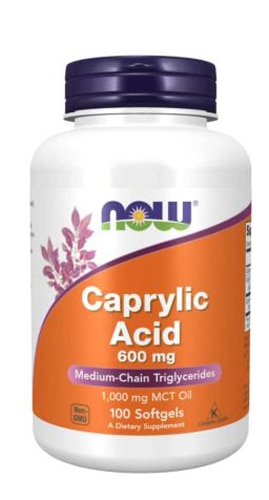[vc_row][vc_column][vc_column_text]Parasites sound frightening, otherworldly and definitely like something you'd want to get rid of as fast as possible if you knew you had one, right? That's what the latest viral cleanse promises to do with the combination of an elimination diet and a long list of antimicrobial herbs.
But as with most trends and fads (especially those that take off on
TikTok), the parasite cleanse appears to be mostly hype. While becoming infected with a parasite is possible, you're better off letting a professional diagnose your symptoms instead of attempting to get rid of them yourself.

Types of intestinal parasites
Actual parasite infections are less common than the parasite cleanse trend would suggest, but they can be serious. These organisms feed off their hosts' blood or nutrient supplies, which may lead to complications.
Intestinal parasites live in animal or human intestines and belong to one of two categories:
- Protozoa, one-celled organisms that can multiply inside their hosts; includes organisms like Giardia intestinalis, Entamoeba histolytica, Cyclospora cayetanenensis and Cryptosporidium species
- Helminths, multi-celled organisms, usually worms, that spread their eggs through their host's feces; includes hookworms, pinworms, whipworms and flukes
Where do intestinal parasites come from?
Intestinal parasites typically spread through water or food contaminated with the organisms or their eggs. People in developing countries are more susceptible to parasite infections due to conditions like poor sanitation, lack of access to clean water and proximity to contaminated soil. Parasites may also thrive more readily in
tropical areas or humid climates.
But the organisms can spread in developed countries, too. Large-scale animal farming creates significant amounts of animal waste. The liquid waste may run off into nearby bodies of water or be sprayed on croplands as fertilizer, which can spread parasites to food and
water supplies. Parasites may also be present in the meat of infected animals like cows, pigs, or fish.
People with parasite infections can pass the organisms to others. The risk is higher for those who live, spend time at or work in
institutional settings like child care and elder care facilities. Having pets can increase the risk of becoming infected at home, particularly for children, who are less likely to wash their hands after contact with contaminated feces.
What are the symptoms of intestinal parasites?
The WHO reports that parasite infections affect
25% of the global population (not "everyone" as the viral cleanse trend often claims). If you do become infected, you'll most likely pick up
Giardia intestinalis—the most common
protozoan cause of diarrhea in developed countries—or pinworms, the
most common parasitic worm in the U.S.
The
symptoms of parasite infections can be very similar to other gut issues and may include:
Some species of parasites cause more distinctive symptoms, such as the
severe itching around the anus common with pinworm infections. Other types of helminths may grow large enough to cause intestinal blockages. In some cases, people with parasites may not have any symptoms.
Should you do a parasite cleanse?
Because symptoms can vary so much, you shouldn't try to self-diagnose a parasite infection—or jump right into a parasite cleanse.
Several compounds from herbs used in popular cleanse protocols have shown potential for use against parasites, but research is scant and effective doses haven't been determined. Dietary change is also unlikely to help because parasites don't appear to thrive on any particular type of food.
Dangers of parasite cleanses
If you assume you have a parasite but really have a different gut condition, doing a cleanse could make your symptoms worse. Herbal supplements used in cleanses may also cause allergic reactions or interact with prescription medications.
If you have a parasite and attempt a cleanse that doesn't work, the infection could lead to potentially
severe complications like:
- Dehydration
- Anemia
- Malnutrition
- Bowel obstruction
- Seizures
- Arthritis
- Arrhythmia
- Organ damage, including to the brain, heart, lungs, liver or kidneys
- Intussusception, a condition where a segment of your colon folds into another segment and causes a blockage
How to (really) cleanse intestinal parasites
Your healthcare provider should be the first person you talk to if you're concerned about parasites. He or she can easily test for, diagnose and suggest a treatment plan for a parasite infection—or figure out what else may be causing your symptoms.
Intestinal parasite tests
Testing is the most accurate way to determine if a parasite is behind your gut issues. Your doctor may perform:
- Stool tests, called ova and parasite tests, to check for worms and eggs
- Blood tests to detect antibodies against parasites, antigens produced by parasites or immune abnormalities like anemia or low white blood cell count that could indicate a parasite infection
- Imaging tests, such as X-rays, MRIs or CT scans, to look for worms inside your intestines
- The "Scotch tape" test, where tape is applied gently to the anal area several times and examined under a microscope to check for pinworm eggs
Treatment for intestinal parasites
If a test is positive, your doctor will likely prescribe either an
antiprotozoal or anti-helminthic medicine, which should clear the infection with one or two doses. But in some cases, a parasite infection may require a regiment that lasts
several weeks.
You may also choose to try
natural remedies under the supervision of a knowledgeable professional. Healthcare providers trained in herbal medicine can point you to the proper combination and doses of herbs and suggest reputable brands with quality ingredients. However, you should still follow up with your primary care doctor to ensure the infection clears.
How to prevent parasite infections
Taking simple precautions can reduce your already low risk of picking up an intestinal parasite. The most obvious habit to follow is to wash your hands and scrub under your fingernails after using the bathroom, changing a diaper, working outdoors or cleaning up after your pet. (Teach your kids to do this, too!)
Prevent food-borne parasite infections by using a meat thermometer to ensure that parasite-prone meats are cooked thoroughly. Wash your hands before preparing food, and disinfect all preparation surfaces with warm, soapy water and a
sanitizer when you're done.
If you're taking care of a child or relative who contracts a parasite, particularly pinworms, it's important to take additional precautions to
prevent the infection from spreading:
- Wash hands and surfaces thoroughly
- Ensure the infected person showers each morning
- Change the infected person's clothes frequently
- Launder diapers, clothes, bedding and towels in hot water
- Keep the infected person's fingernails short to discourage scratching
- Vacuum and mop the floors every day to remove eggs
- Wash walls, counters and toilet seats with warm, soapy water and a sanitizer
Traveling to a high-risk area in the developing world can increase your risk of parasite infection. On such trips, minimize your chances of parasite infections by sticking to bottled or boiled water, avoiding food washed in untreated water, and wearing enclosed shoes. Let your doctor know about any trips you take; he or she may want to do a parasite test as a precaution when you return.[/vc_column_text][/vc_column][/vc_row][vc_row][vc_column][vc_text_separator title="Featured Products" border_width="2"][vc_row_inner equal_height="yes" content_placement="middle" gap="35"][vc_column_inner width="1/3"][vc_single_image image="180096" img_size="full" alignment="center" onclick="custom_link" img_link_target="_blank" css=".vc_custom_1732387092315{padding-right: 7% !important;padding-left: 7% !important;}" link="https://www.vitacost.com/healthforce-superfoods-scram-internal-parasite-formula"][/vc_column_inner][vc_column_inner width="1/3"][vc_single_image image="180097" img_size="full" alignment="center" onclick="custom_link" img_link_target="_blank" css=".vc_custom_1732387107026{padding-right: 7% !important;padding-left: 7% !important;}" link="https://www.vitacost.com/pure-planet-organic-parasite-cleanse-with-super-food-fibers"][/vc_column_inner][vc_column_inner width="1/3"][vc_single_image image="180098" img_size="full" alignment="center" onclick="custom_link" img_link_target="_blank" css=".vc_custom_1732387123060{padding-right: 7% !important;padding-left: 7% !important;}" link="https://www.vitacost.com/zahler-paraguard-parasite-cleanse-detox-intestinal-flora-support"][/vc_column_inner][/vc_row_inner][/vc_column][/vc_row]




